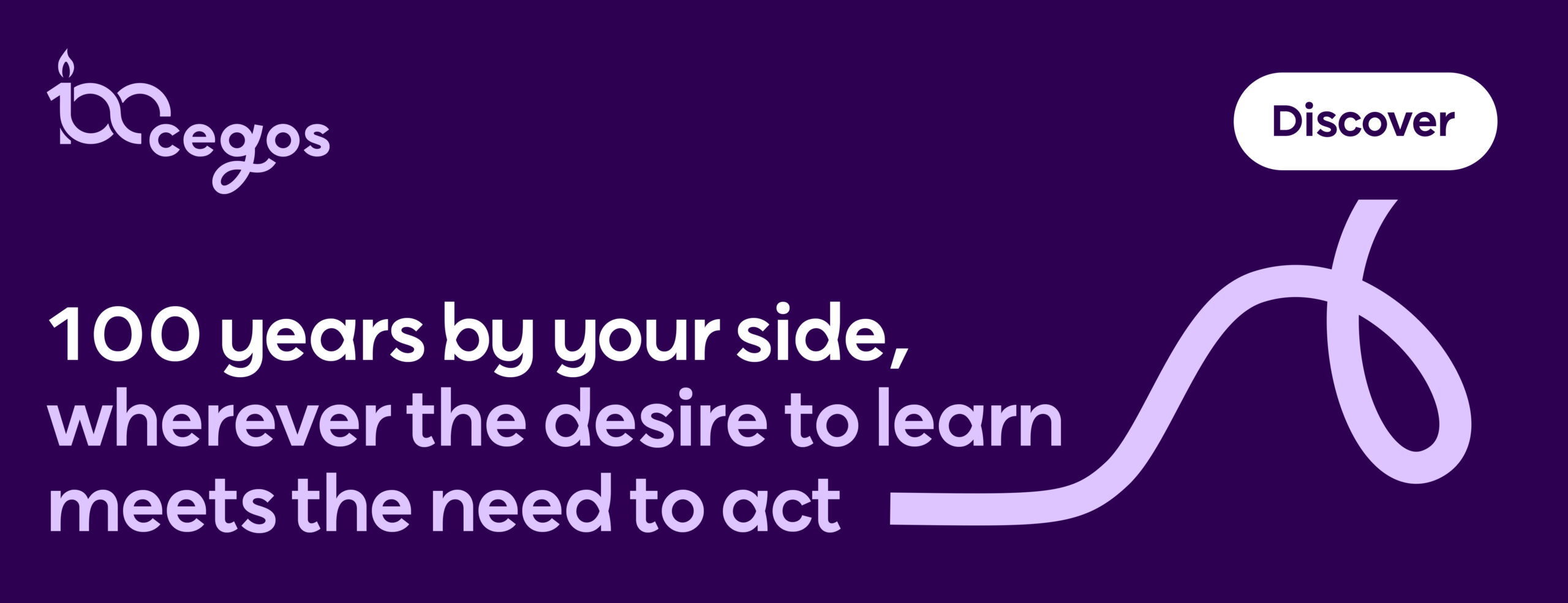
Generative AI raises impact on skills development |Survey results

Each year, Cegos conducts a ‘Barometer’ survey, where we take the temperature of the training industry to see what is hot and what is not among the HR and business community.
This year, the pace of technological change – particularly regarding Generative Artificial Intelligence – is creating significant challenges in terms of skills development and job retention. Many HR managers are struggling to keep up with the latest trends, but there is some evidence that more employees are taking on the responsibility of skills development themselves to remain competitive.
For the 2024 survey, we interviewed 5,000 employees and 469 HR and Training directors across five European countries – France, Germany, Italy, Portugal and Spain, along with Singapore in Asia and Brazil, Mexico and Chile in Latin America.
Four major themes emerge from the survey results:
1) Accelerating technological change lies at the heart of the modern training
When asked about changes that will impact employee skills over the next two years, HR managers overwhelmingly identify artificial intelligence and data (63%, a dramatic shift of 15 points vs. 2023). They also rank information systems development and cybersecurity as being critical.
76% of employees anticipate a change in the content of their work. This feeling is stronger among managers (83% vs. 78% in 2023). Another striking response is that 31% of employees, particularly blue-collar workers (38%), expect their job to completely disappear. However, HR managers are more optimistic, believing that only one job in five presents a risk of skills becoming obsolete in the next three years.
Moreover, 27% of employees believe that they no longer have, or soon will no longer have, the skills they need to do their job properly.
To cope with the impact of these changes, HR departments are giving priority to up-skilling employees in their current position (62%, +5 points), particularly in France (77%, +15 points).
HR professionals have also taken on board the challenges of technological transformation. 43% believe employees' digital skills must be consolidated first, followed by soft skills (35%).
However, employees and HR managers have slightly different expectations as to how this is achieved.
Employees want to learn how to be more efficient in their work organisation, probably to cope with a hybrid work environment and with the multiplication of information flows. They also want training in creativity (36% overall) and agility (33%). As HR managers face the accelerating pace of change, they are focusing more on agility and adaptability (49%).
2) Skills development is a shared strategic opportunity
32% of employees say they are personally involved in developing their skills, with Portuguese employees especially committed to training themselves (40%).
The respondents also agree on the partnership dimension of skills development: for 63% of employees and 66% of HR managers, it is a responsibility equally shared between the company and the employee.
Indeed, 92% of employees say they are prepared to undertake their own training to adapt to the way jobs and professions are changing. 58% are even prepared to finance part of their training (rising to 76% in Europe).
3) Companies must meet the ‘time to competency’ challenge
HRDs consider their organisations to be agile when meeting staff training needs in a timely manner. However, in practice, 44% admit they find it difficult to align skills requirements with their training offer (an increase of 3 points vs. 2023).
As far as employees are concerned, 43% declare that responses to training requests often arrive several weeks or even months after they have expressed them.
Furthermore, 15% believe their company simply does not provide any solution. This proportion rises to 20% among blue-collar workers and 18% in the public sector.
4) Existing training systems expected to change due to Generative AI
Remote training now accounts for 46% of all training courses, with synchronous training being the preferred method at 57%.
49% of HR managers are using or intend to use e-coaching in the short term. This trend is stronger in France (60%, +22 points) but weaker in Singapore (30%).
Above all, employees expect training programmes to give priority to on-the-job situations, so that they can transfer what they have learned to their day-to-day work. They also expect training to be more interactive and fun (42%), but also more personalised (38%).
Generative AI is firmly taking its place in the training landscape. 44% of employees say they have already used it to learn (+13 points compared to last year).
81% of HR decision-makers say they have already used or plan to use Gen AI as a training method. This is particularly true in the private sector (82% overall) and in companies with between 500 and 1,999 employees (86%). In fact, 18% of HR professionals have already used Gen AI to individualise training paths.
“Agility and usefulness are the two major challenges facing HR and L&D departments when it comes to supporting employees in developing their skills,” says Grégory Gallic, Manager of the ‘Learning Engineering and Professional Effectiveness’ Offering and Expertise at the Cegos Group. “This means meeting training needs on time and offering courses that can be easily and immediately transposed into everyday working life".
“As the world is being radically transformed by technological developments, training is becoming a genuine support for individual and collective performance. Innovation in training is becoming an imperative: we need to invest in solutions based on artificial intelligence, in flexible learning platforms, and to adopt fun and interactive training methods, to provide a targeted and rapid response to individual needs and to support employees' commitment to their development".
“This is all the more important given that employees are determined to train themselves to safeguard their employability.”
To dig further into those results and find out how to turn insights into actions, watch the replay of the webinar "L&D Trends... and so what?"
To download your free copy of the Cegos 2024 survey “Transformation, Skills and Learning” fill in the following form.
This "Transformations, Skills & Learning" surveys has been caried out for several years. To read previous results and analysis, click on the year you are interested in: 2023, 2022, 2020.










